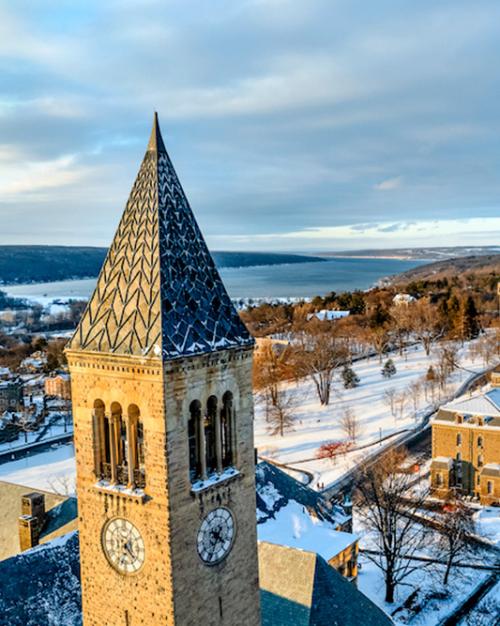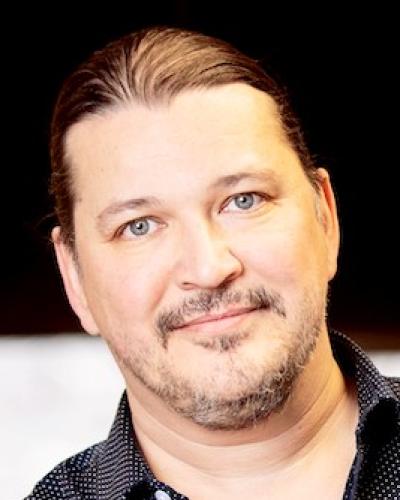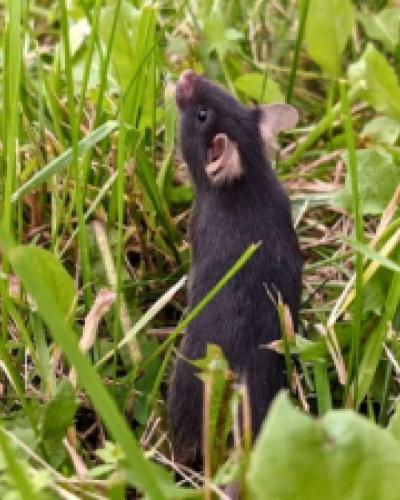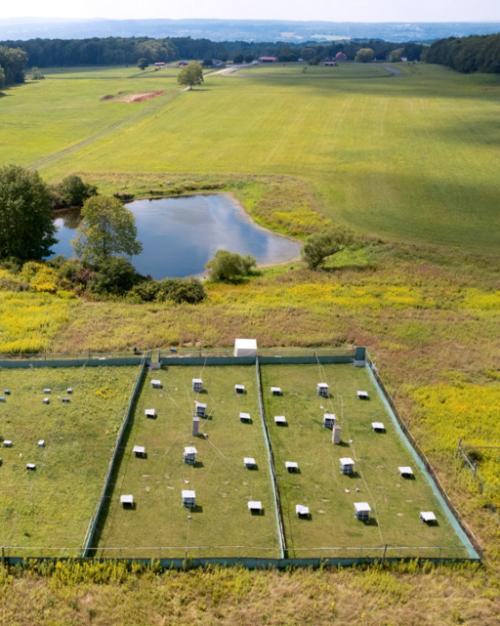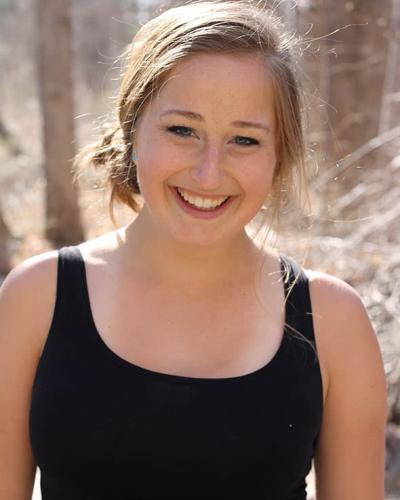Eliza Baird-Daniel '15
MAJOR: BIOLOGICAL SCIENCES
HOMETOWN: SEATTLE, WA
Why did you choose Cornell?
I wanted to explore a new part of the country and was specifically drawn to Cornell because of the strong research community, outdoorsy culture, and diversity of studies. When I came to visit, I was not only so impressed by the caliber of research but also that undergraduates were deeply involved in it.
What is your main Cornell extracurricular activity -- why is it important to you?
Through GlobeMed, a club on campus, I work with MacCormick Secure Center to develop economic empowerment curricula for the inmates. I've had the privilege this year to lead this group and design the weekly projects. Working with this population has been both incredibly formative and rewarding. The incarcerated youth that I have gotten to know represent a hugely underserved group that I believe have far more potential than credited for.
What was your most profound turning point while at Cornell?
Prior to my sophomore year, I wasn’t entirely sold on the biology major. Despite this, I thought I would give the intro to neuroscience series a try. My experiences taking these courses truly solidified my love for science and remain some of my favorite courses to date. The two part series is taught by such a passionate team that, to me, it felt impossible to not get exited about the material. It was also one of the first science courses at Cornell that lent a philosophical view of biology. This introduction to the brain, and its complex functions, was so inspiring because it exposed me to the idea that physical processes are what give us our abstract, unquantifiable life experience.
What, if any, Cornell-related scholarships/special financial benefits did you receive?
I am incredibly thankful to have received the Einhorn Discovery Grant for my senior thesis research project. It allowed for me to learn about the grant writing process and enabled me to fund some of my own research.
What accomplishments/activities are you most proud of while at Cornell?
I am very proud that during my time here, I have allowed Cornell to challenge me and ultimately exceed my expectations. The premed path seemed very intimidating to me as an incoming freshman and I wasn’t confident that I would be able to “stick it out”. I am proud that rather than simply trying to “stick it out” I became very inspired by my classes which fostered genuine interest in the material. The further down the premed path I went, the more excited I became about the courses and the challenges that they presented. I allowed myself to become encouraged by the material rather than feel like it was something I just had to check off from a list of requirements.
What, if any, research projects did you participate in at Cornell?
I work in Dr. Jesse Goldberg’s lab examining the neural mechanisms behind trial and error learning. We use songbirds to study motor learning because the way that they acquire song is analogous to how many other organisms learn-- including how humans learn how to walk and talk. We know relatively so little about how the brain works and it is incredibly exciting to be part of expanding our knowledge. This experience has been hugely formative in developing my career path as I am certain that I will always want to be involved in scientific research.
What Cornell memory do you treasure the most?
I treasure many memories from my time here, especially those made with my friends over the summer when I stayed in Ithaca to do research. The Fingerlake region is incredibly beautiful in the summer and there is never a shortage of things to do outside. Getting to spend so much time hiking, swimming, and sampling food at the farmers market was absolutely unforgettable. A close friend and I were also able to plant a vegetable garden. While we certainly could have taken better care of it, it was so rewarding to be able to eat the fruits and vegetables that we had spent the summer growing.
Who or what influenced your Cornell education the most? How or why?
Many people have had great influences on my Cornell experience but my professor Dr. Jesse Goldberg in particular has been an incredible source of encouragement and guidance. I am so honored to have worked with someone who is such a remarkable teacher and has allowed me the intellectual power and freedom to design experiments and explore scientific questions. He also is an amazing mentor and am so thankful that he was there to hear me out on matters from lab equipment orders to possible career paths.
How did any of your beliefs or interests change during your time at Cornell?
The summer between my sophomore and junior years, I worked in a public maternity ward in Cusco, Peru through the global heath minor. I learned much more than expected about the difficulties presented in cultural translation and how medical systems function outside of the United States. It was an amazingly informative experience and taught me to think more critically of the role of western privilege of in other systems.
What do you value about your liberal arts education?
I am so thankful that I have been exposed to so many different disciplines, each showing a unique method of approaching and solving a diverse range of problems. Being able to go from a class in gender studies to one in animal behavior, for example, allowed for the formation of surprising connections. I feel that a liberal arts education not only enabled me to foster a diversity of interests but also allowed me to make valuable friendships with people from different backgrounds. These friendships have taught me so much about ideas that I would otherwise not have had access to.
What are your plans for next year; where do you see yourself in 10 years?
Next year I will be doing neuroscience research at Weill Medical School in New York City in the neurosurgery department. The lab I will be working in examines novel methods of seizure detection and prevention, something I have always had an interest in. In 10 years I see myself working as a doctor involved in both seeing patients and clinical research.

